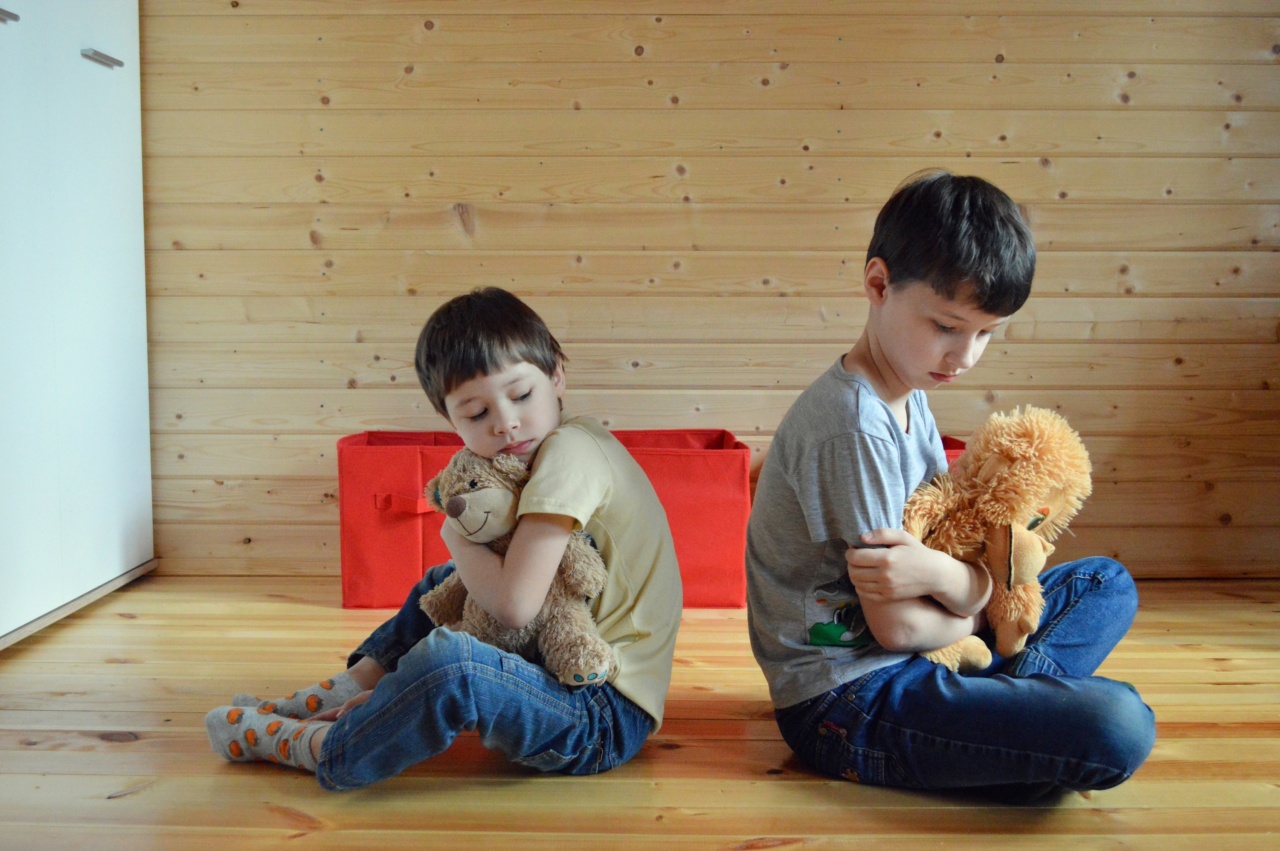As parents, we try our best to protect our children from harm and shield them from disappointment. However, there are times when we have to say “sorry” to our little ones, teaching them valuable lessons about life.
While it may be difficult in the moment, apologizing to our children can have long-lasting positive effects on their emotional development. Let’s explore some common situations where we may need to say sorry to our kids.
1. Disappointments and Broken Promises
One of the most common instances that require a heartfelt apology is when we cannot fulfill a promise we made to our children.
Whether it’s missing a school event or not being able to buy them a coveted toy, letting our kids down can be devastating for them. Instead of making excuses, it’s essential to apologize sincerely, explaining the reasons behind our inability to keep the promise.
This helps children understand that sometimes unforeseen circumstances can arise, and it’s okay to be disappointed.
2. Losing Our Temper
Parenting can be overwhelming, and it’s natural for parents to feel stressed or frustrated at times. However, lashing out at our kids in anger is something we should always apologize for.
Yelling, saying hurtful words, or resorting to physical punishment can leave lasting scars on their self-esteem and overall well-being. By apologizing, we demonstrate that everyone makes mistakes, and it’s essential to take responsibility for our actions. This teaches children the value of empathy and the importance of treating others with respect.
3. Overreacting to Mistakes
Children are bound to make mistakes—it’s how they learn and grow. However, in the heat of the moment, we may overreact and respond harshly, unintentionally discouraging them from trying new things or taking risks.
It’s crucial to admit when we’ve overreacted and apologize for our disproportionate response. By doing so, we reassure our kids that it’s okay to make mistakes and encourage them to keep exploring and learning without fear of judgment.
4. Breaking Trust
Trust is the foundation of any relationship, including the one we have with our children. When we break their trust, whether it’s by breaking a promise or betraying their confidence, it’s vital to apologize sincerely.
By saying sorry, we acknowledge the importance of trust and the impact of our actions. This allows our children to understand the significance of trust in relationships and helps us rebuild the bond we share with them.
5. Not Listening
In our busy lives, it can be challenging to truly listen to our children. Often, we may brush off their concerns, ideas, or stories, unknowingly making them feel unimportant or unvalued.
It’s crucial to acknowledge when we’ve not been attentive and apologize for not giving them the attention they deserve. By doing so, we teach them the significance of active listening and show them that their thoughts and feelings matter.
6. Comparing Them to Others
Every child is unique and has their own strengths and weaknesses. However, as parents, we sometimes fall into the trap of comparing our children to their siblings, friends, or other kids.
These comparisons can breed insecurity, jealousy, and a sense of inadequacy in our little ones. Apologizing for making such comparisons and emphasizing the value of individuality helps our children embrace their uniqueness and develop a healthy self-esteem.
7. Not Recognizing Their Feelings
Children experience a range of emotions, just like adults, and it’s crucial to validate and acknowledge their feelings.
However, there may be times when we overlook or dismiss our children’s emotions, unintentionally undermining their emotional well-being. By apologizing and showing them that their feelings are valid and important, we teach them the essential skill of empathy and create a safe space for them to express themselves.
8. Not Spending Quality Time
In the hustle and bustle of life, it’s easy to get caught up in work, household chores, and other obligations, leaving little time for quality bonding with our children.
When we neglect spending dedicated time with our kids, it can leave them feeling unloved or unimportant. As parents, we should apologize for not prioritizing these moments and emphasize the significance of quality time in building strong relationships.
9. Setting Unrealistic Expectations
As parents, we strive to motivate our children to do their best. However, setting unrealistic expectations can create undue pressure and stress. It’s important to reflect on the expectations we have set and apologize if we realize they are too high.
By doing so, we encourage our children to set realistic goals, fostering a healthy sense of achievement and boosting their self-confidence.
10. Not Saying “I Love You” Enough
Lastly, we need to apologize if we haven’t expressed our love for our children as often as we should. Life gets busy, but it’s essential to remind them that our love is unwavering.
By apologizing and reaffirming our love, we demonstrate to our kids that expressing emotions is a sign of strength and that they are always cherished.































